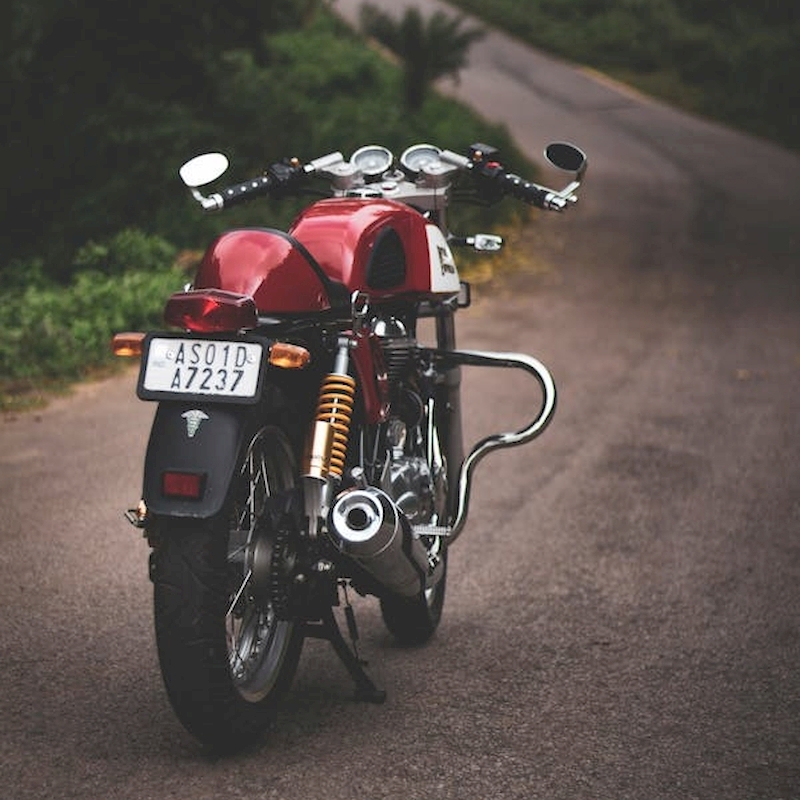Physical Address
304 North Cardinal St.
Dorchester Center, MA 02124
Physical Address
304 North Cardinal St.
Dorchester Center, MA 02124

Motorcycles are a thrilling and efficient mode of transport. Riding one can deliver an unparalleled sense of freedom while also providing practical benefits like fuel efficiency. However, before you can hit the open road on two wheels in Pennsylvania, you’ll need to ensure you have the proper motorcycle permit. Understanding how to get a motorcycle permit in PA is crucial for both inexperienced riders and those returning to riding after a hiatus. This process not only requires you to pass a series of tests but also entails a firm understanding of safety protocols. In this article, we will delve deep into the intricacies of obtaining your motorcycle permit in Pennsylvania, discussing all the necessary steps, requirements, and helpful tips to konw how to get motorcycle permit in pa.

Before diving into the permit process, it’s essential to grasp the purpose and types of motorcycle permits in Pennsylvania. A motorcycle permit allows individuals to legally operate a motorcycle on public roads, albeit with certain restrictions. In Pennsylvania, there are two types of permits available for motorcycle riders: a motorcycle learner’s permit and a motorcycle license. The learner’s permit allows you to practice driving under limited conditions, whereas a motorcycle license signifies that you have met all the necessary requirements to ride independently.
Understanding the theory of motorcycle riding, the rules of the road, and the specific mandates that come with the permit can significantly contribute to your success as a motorcyclist. With these basics laid out, let’s explore how to get a motorcycle permit in PA step by step.
Before you can start the process of obtaining your motorcycle permit, you must meet specific eligibility criteria. In Pennsylvania, the minimum age to apply for a motorcycle learner’s permit is 16 years old. However, if you are under 18, there are additional steps you’ll need to follow. You must also hold a valid Pennsylvania driver’s license or have obtained a non-driver’s ID from the state.
Additionally, it is essential to complete a vision screening, as poor vision can severely impact your ability to ride safely. Make sure you have documentation, such as proof of identity, Social Security number, and residence, when applying. Understanding these eligibility requirements will prepare you for the next steps in the application process.
Once you confirm your eligibility, the next step in how to get a motorcycle permit in PA is to prepare for the written knowledge test. This exam assesses your understanding of the rules and regulations regarding motorcycle riding as well as road safety. The Pennsylvania Motorcycle Safety Program (PAMSP) offers valuable resources, including a comprehensive handbook that outlines critical information you should know before the test.
It is recommended that you study the official Motorcycle Operator’s Manual published by the Pennsylvania Department of Transportation (PennDOT). This manual covers various topics, including motorcycle handling, traffic laws specific to motorcyclists, and strategies for staying safe on the road.
Consider taking practice tests available online. Familiarizing yourself with the types of questions you will encounter can significantly enhance your confidence. Make sure to allocate adequate time for studying to ensure you understand the material well.
On the day of the test, arrive at your local PennDOT office with all necessary documentation, including proof of identity. The written knowledge test is typically multiple-choice and administered on a computer. You should approach this test calmly and confidently, keeping in mind all the preparation you have done.
In the event you do not pass the written test, don’t be discouraged. You can retake it after a waiting period, allowing you time to study any weak areas identified during your initial attempt. Once you successfully complete this test, you will be one step closer to obtaining your motorcycle learner’s permit.
After passing the written test, you will be issued a motorcycle learner’s permit. This document allows you to ride under certain restrictions, primarily designed to ensure your safety as you gain experience. Some restrictions include riding only during daylight hours, not carrying passengers, and not exceeding a speed limit of 35 miles per hour.
Your learner’s permit is typically valid for a limited amount of time, usually 12 months. Take full advantage of this period to accumulate riding hours and develop your skills. Engaging in practical experience is crucial and will prepare you for when you eventually pursue a full motorcycle license.

As you navigate the roads on your learner’s permit, consider enrolling in a course from the Pennsylvania Motorcycle Safety Program (PAMSP). These courses focus on enhancing your riding skills, teaching you defensive driving techniques specifically designed for motorcyclists.
Participation can lead to significant benefits, such as improved riding experience, and may even qualify you for an insurance discount. Most importantly, completing one of PAMSP’s training courses can waive the need to take the skills test when applying for your motorcycle license. This can save you time and make the transition to independent riding smoother.
Once you feel confident in your abilities and have completed the recommended training courses, it’s time to transition from the motorcycle learner’s permit to a full motorcycle license. To do this, you will need to pass the skills test, which assesses your practical riding abilities in real-world conditions.
Before scheduling your skills test, ensure that you’re familiar with the motorcycle you’ll be riding. Having a bike that’s properly maintained is also crucial, as a malfunction could impact your performance. On the day of the test, arrive early and mentally prepare yourself by reviewing the maneuvers you’ll be required to demonstrate.
When you pass the skills test, you will be eligible to apply for your full motorcycle license, allowing you to ride legally without any restrictions.
As you embrace the freedom of motorcycle riding, prioritizing safety should always be at the forefront. Wearing the proper gear is essential for protecting yourself in the event of an accident. Always invest in a quality helmet that meets safety standards, as well as gloves, jackets, long pants, and sturdy boots designed for motorcycle use.
Learning to never ride without a helmet is a critical lesson for new motorcyclists. Moreover, utilizing reflective or high-visibility clothing can significantly enhance your visibility on the road. Safe riding practices contribute to your safety and that of others around you.
As you progress on your journey as a motorcyclist, you’ll eventually approach the decision of selecting your motorcycle. Choosing the right bike can significantly enhance your riding experience. Consider factors such as your riding style, experience level, and the type of terrain you will be navigating.
If you are just starting, a smaller displacement motorcycle is often a wise choice. These bikes are typically lighter, easier to handle, and less intimidating for new riders. As you gain confidence and experience, you may find it beneficial to upgrade to a larger motorcycle that better fits your riding needs.
When selecting a motorcycle, consider taking some test rides. This hands-on experience allows you to assess how different models feel without the pressure of making a commitment. Additionally, research motorcycle reviews and forums to gather information from seasoned riders to inform your decision.
Another critical aspect to consider is obtaining motorcycle insurance. Riders in Pennsylvania are required to carry insurance to protect both themselves and others in the event of an accident. Motorcycle insurance policies can vary significantly, so it’s essential to shop around for the best coverage that fits your needs.
Insurance not only provides liability coverage for injuries to others or damage to property but may also cover your medical bills, damage to your motorcycle, or theft. Riding without insurance can lead to significant personal and financial hardship in case of an accident.
Consult with an insurance professional who specializes in motorcycle coverage to help you understand your options fully. This conversation can also provide insights into how to qualify for potential discounts or bundling options with other types of insurance.

Successfully navigating how to get a motorcycle permit in PA is a rewarding journey that opens up a world of opportunities. From gaining the essential credentials to enhance your motorcycling skills through training and ensuring safety on the road, the benefits extend far beyond mere regulatory compliance. Your commitment to preparation, education, and responsible riding contributes to making every ride enjoyable, safe, and fulfilling.
Importantly, the road ahead will continuously present opportunities for growth. As you transition from a beginner to an experienced motorcyclist, embrace the learning process and all the insights gained along the way. Remember, being a responsible rider means fostering a sense of community with fellow drivers and promoting safety and camaraderie on the road. With every journey, you’re not just riding a motorcycle; you’re becoming part of a vibrant community where shared experiences and mutual respect pave the way for a fulfilling journey ahead.